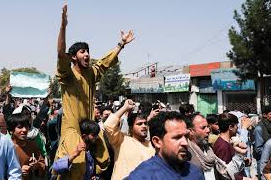
Supporters Rally in Response to Political Turmoil and Violence
The recent detention of former Prime Minister Imran Khan has revealed the extraordinary speed at which his passionate supporters can gather in Pakistan. In mere hours following his arrest, crowds of loyalists reacted with fury, setting fire to vehicles and buildings while launching assaults on police and military installations to protest the treatment of the 70-year-old leader. This surge in support signals a formidable challenge to the government and military, demonstrating the potential for his followers to alter the political landscape through relentless pressure.
What Makes Imran Khan So Popular?
Khan has been a significant figure in Pakistan for decades. His fame began as a cricketer when he led the nation to its sole World Cup victory in 1992, earning him the status of a national hero. Beyond sports, he founded Pakistan’s first cancer hospital in honour of his mother and has been active in philanthropy. His strong anti-corruption stance resonates in a nation struggling with graft, and he positions himself as the only leader willing to confront Western powers, particularly the United States—a narrative that finds a receptive audience in Pakistan, where resentment towards foreign interference runs deep.
Who Forms Khan’s Support Base?
Khan’s appeal crosses various social strata. His followers include young, educated individuals disillusioned with the traditional political elite represented by the Sharifs and Bhuttos. He also connects with the diaspora and rural populations lacking access to social media.
A unifying theme among these groups is Khan’s call to challenge the elite and disrupt the status quo, feeding into their feelings of disenfranchisement. His rallies attract thousands, encompassing a diverse demographic of men, women, and youth. His strong support among younger voters has propelled his party’s prominence on social media platforms, particularly Twitter, with a significant base located in eastern Punjab and Khyber Pakhtunkhwa.
What Distinguishes This Recent Violence?
The violent clashes with law enforcement and the mass arrests of activists from Khan’s Pakistan Tehreek-e-Insaf party have not deterred his supporters. They are determined to protect Khan, vowing to retaliate against anyone who threatens him, viewing his arrest as a red line. This intensity of violence recalls the unrest following the assassination of Benazir Bhutto in 2007, when her supporters rioted for days. Even with the suspension of social media and mobile internet, Khan’s followers continue to mobilise by the thousands.
What Comes Next?
The upheaval has placed significant pressure on the government, security forces, and judiciary, who now face the challenge of managing the unrest while addressing the demands of Khan’s supporters. The situation remains volatile, with the potential for further escalation as tensions rise.









